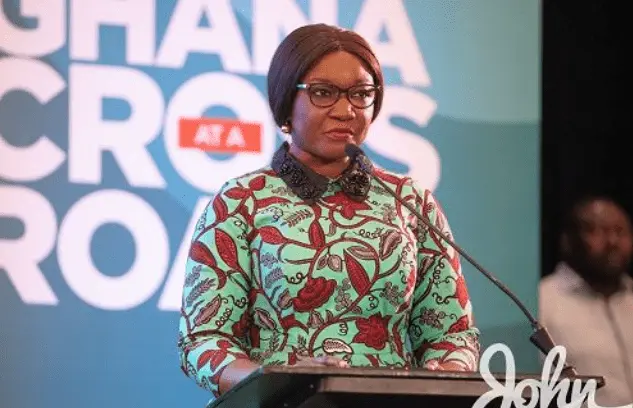Accra, Ghana – In a surprising turn of economic fortune, the Ghana cedi has emerged as the world’s best-performing currency, staging a remarkable recovery against the United States dollar. This resurgence has prompted calls for businesses to reflect the cedi strength in price reduction, a sentiment echoed by Joyce Bawah Mogtari, Special Aide to former President John Mahama. Mogtari argues that equitable pricing is essential in light of the cedi’s appreciation, urging businesses to pass on the benefits to consumers. The recent drop in inflation, coupled with examples like Orca Deco’s proactive price adjustments, underscores the growing pressure on companies to act.
The Cedi’s Remarkable Recovery
Bloomberg recently reported on the cedi’s impressive performance, noting its nearly 16% appreciation since April 2025. This turnaround is attributed to a combination of factors, including economic reforms and increased foreign investment. A stronger cedi promises several benefits for the Ghanaian economy, including lower import costs and reduced inflation. However, challenges remain, particularly concerning the impact on exports and the need for sustainable economic policies.
Joyce Bawah’s Call for Ethical Pricing
Mogtari’s appeal centers on the concept of equity and economic responsibility. “If we can increase prices when the cedi weakens,” she stated, “we must be willing to reduce prices when the cedi strengthens. That is what equity demands.” This argument emphasizes the need for businesses to adopt fair pricing practices and act responsibly in response to economic changes. With inflation decreasing to 21.2% in April, Mogtari believes this decline should translate into tangible price adjustments for consumers, urging businesses to pass on these benefits.
Orca Deco: A Positive Example
Among the businesses responding to the cedi strength, Orca Deco has been lauded for its proactive approach. The company implemented a 15% price reduction, demonstrating a commitment to its customer base. “They did not wait for pressure from the public or hide behind logistics excuses,” Mogtari noted. “Instead, they passed on the benefit to customers.” This principled action highlights the importance of a customer-focused approach, particularly in times of economic fluctuation.
In contrast to Orca Deco, Mogtari has criticized other businesses for their silence and inaction. She questioned importers, fuel distributors, and traders about their lack of response to the strengthening cedi, reinforcing the need for a collective sense of economic responsibility. The question remains: why aren’t more businesses following suit and reflecting the cedi strength in price reduction?
The Broader Economic Implications
Mogatri’s insistence on ethical pricing aligns with the country’s improving macroeconomic indicators. With Ghana’s economy showing signs of recovery, businesses must play their part. This, in turn, fosters increased consumer confidence and spending, key ingredients for sustainable economic growth. Ethical pricing, therefore, is not merely a matter of fairness but also a crucial element in bolstering the nation’s economic prospects. Ghana’s cedi strength offers an opportunity to improve the everyday lives of Ghanaians through affordable goods and services.
In conclusion, Joyce Bawah Mogtari’s message underscores the importance of businesses reflecting cedi strength in price reduction, echoing a call for ethical practices and economic responsibility. Orca Deco serves as a model for others to emulate, demonstrating the potential for a stronger economy built on fair pricing and customer-centric policies. Only through such collective efforts can Ghana fully realize the benefits of its currency’s resurgence.
Image Source: MYJOYONLINE





















